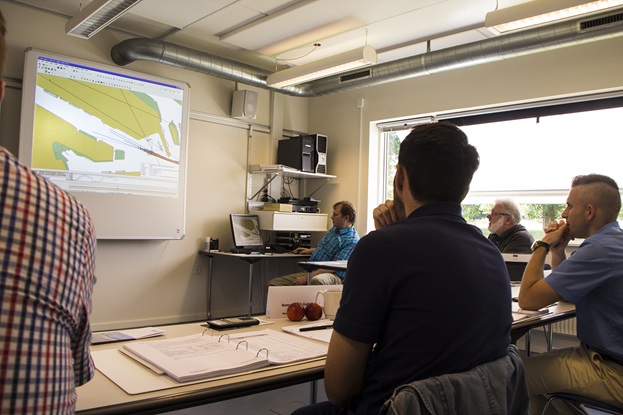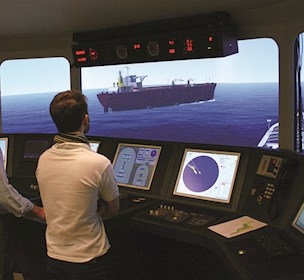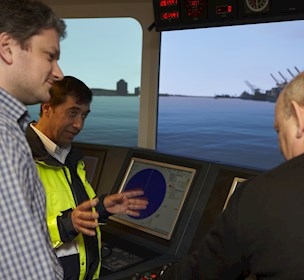Converting theoretical knowledge into practical skills
Embarking on a training journey with us means turning your theoretical understanding into practical maritime skills., through personalized simulation exercises and expert-led sessions.
In our maritime simulator training, the preparation phase is of vital importance. We know that teaching experts differs from most other training, and this is why we, prior to a course, make an expected profile of the participants based on their probable experience with ship types, their seniority, nationalities and possible barriers to learning.
Our experience shows that the participants’ professional knowledge and experience must be considered, and the training has to build upon their skills and knowledge. When respecting the participants’ professional experience and knowledge, it is possible to avoid resistance to learning and consequently to transform their newly acquired knowledge into altered behaviour in their professional lives.
Dialogue is the key
An important pedagogical tool is bringing the participants’ knowledge and experience into the classroom. This way they take an active part in the training. Whenever a new subject is introduced, the participants are asked for their input. This teaching method is possible due to relatively small teams of 4-8 participants.
Based on the participant profile made before the course and the theory from the classroom, the training goals of each simulator exercise are determined in accordance with either legislation or objectives from the shipowner.
Before sending the participants into the simulator, they are thoroughly briefed regarding the exercise in order for them to plan the operation as they do in real life. “If they go straight to the simulator exercise without planning the operation first, it is difficult to obtain a constructive dialogue afterwards about what went wrong according to their plan, and what they should have done differently,” explains Carl Thue Rabjerg, Senior Instructor at FORCE Technology.
Each simulator exercise is followed by a debriefing session where the participants are asked to summarise what succeeded according to their plan, and what they should have done differently. The instructors are thoroughly trained in facilitating the reflective debriefing using four different types of questions (define/discover, explore relations, challenge existing ideas and conceptions, behavioural influence) in order to learn about the participants’ awareness and reflections on what went well, what went wrong, and what they need to improve.
This approach to debriefing motivates the participants to consider the outcome of the exercise and change their behaviour.
“We can tell that the participants’ behaviour is changed by being subjected to these pedagogical methods – we can actually see the improvement during the training,” concludes Carl Thue Rabjerg.
More than an IMO course
Our courses reach beyond just complying with the IMO recommendations as we tailor-make each course to match the experience level of the participants and the needs of our customers.
The ships and environments used in the courses are selected from a huge database to replicate scenarios from the participants’ professional lives. This makes the training similar to what the participants experience during their daily work in terms of the navigation and behaviour of the ship and well-known surroundings, which also strengthens the learning transfer.
We regularly update our instructors on the newest pedagogical tools, and their technical and ship-specific knowledge is kept up to date through sailing and courses.




